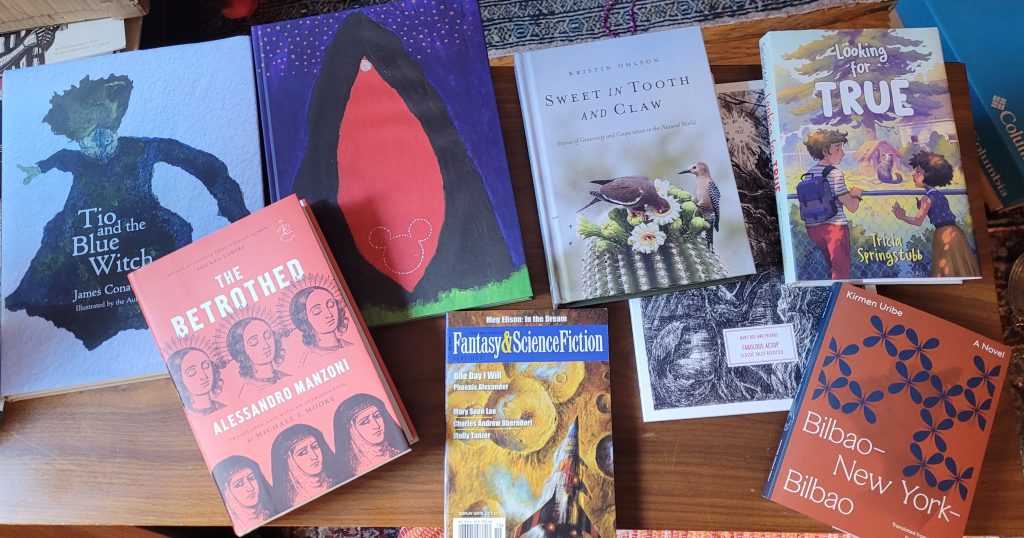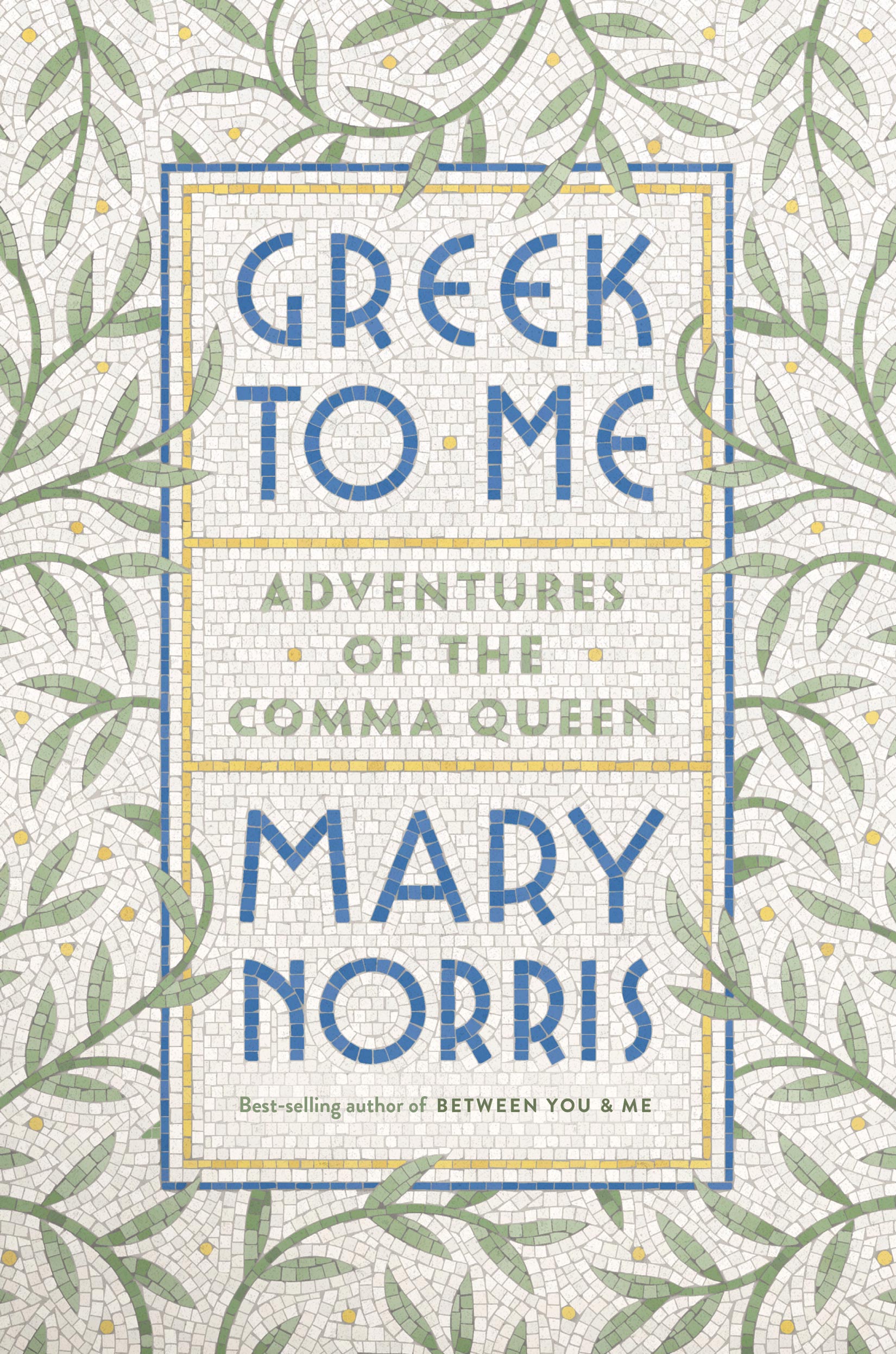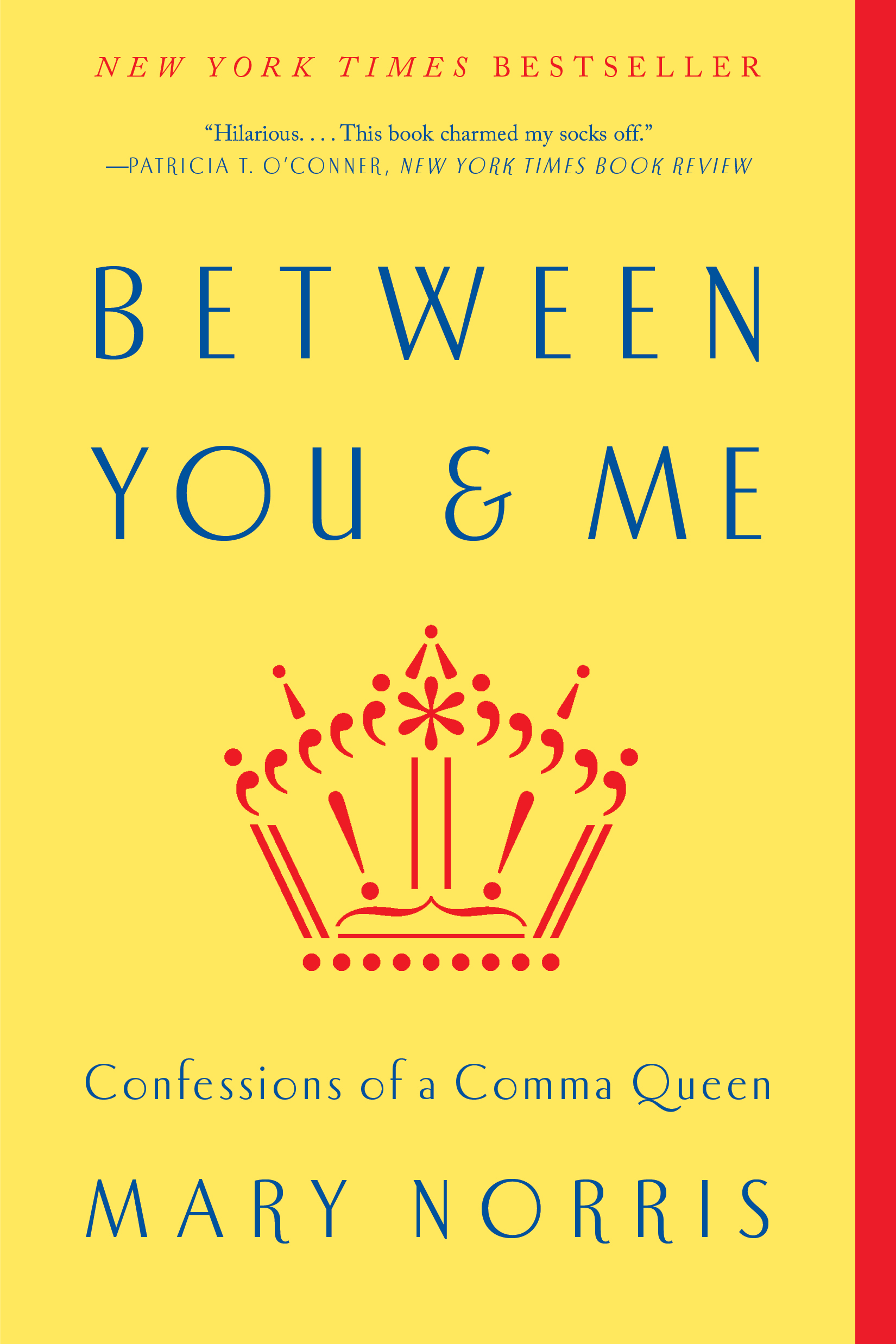Holiday List: Seven Books by Close Personal Friends and Family
The year 2022 was a big one for a handful of writers who happen to be my friends, and I can’t help bragging about them. Is this unethical? O.K. Here are seven new works by seven deserving writers, in unethical order.

FABULOUS AESOP: CLASSIC TALES REVISITED, by Baby Dee and Friends, was published by Zagava, a press in Düsseldorf run by Jonas Ploeger, one of Baby Dee’s friends. During the pandemic, Baby Dee, a touring musician, sent out a request to friends to retell a fable of their choosing. The result is a sort of “Fractured Fairy Tales,” in which the nouveaux fabulists are free to ignore or invert the traditional moral. Dee herself wrote and illustrated (watercolor on lined notebook paper) two classics: “The Lion and the Mouse” and “The Donkey and the Icons.” Christina de Vos, a Dutch artist who is married to Dee, contributed a poignant version of “The Boy Who Cried Wolf” as well as the art for “The Thirsty Crow,” retold by Gregory Maguire, of “Wicked” fame, and for “The Ant and the Grasshopper,” by Baby Dee’s sister (that’s me—I think Aesop was unfair to the grasshopper). Some of Dee’s musician friends got in on the act: Fabrizio Modonese Palumbo, a guitarist from Turin, took on “The Camel,” Alex Neilson, a drummer based in Glasgow, attacked “The Fox and the Crow,” and Little Annie Bandez, currently of Miami, had her way with “The Scorpion and the Frog.” There are many others, among which I must mention my own recruits: J. Kathleen White (“The Lion’s Share”) and Jacqueline Cummins (“The Milkmaid and Her Pail”), and the consummate puppeteer Erin K. Orr (“The Mother and the Wolf:). David Tibet, leader of the cult band Current 93, provided a provocative cover for the hardbound artist’s edition. There is also a paperback edition with a dark tangle by Julia Nau illustrating “The Fox and the Crow.” This is Aesop for the unfettered.
BILBAO–NEW YORK–BILBAO, a novel by Kirmen Uribe, a Basque poet, was translated by my friend Elizabeth Macklin, also a poet. Originally from Poughkeepsie, Liz worked at The New Yorker as a copy editor, query proofreader, and assistant to William Shawn, before winning an Amy Lowell Poetry Travelling Scholarship in 1998, and becoming the world’s leading literary translator of Basque to English. She keeps a clock in her apartment set to Bilbao time. The novel, a loose retelling of Uribe’s family (and Basque) history interwoven with air travel and meditations in airports, won prizes when it came out in Basque and Spanish, in 2009. Liz’s translation found a sympathetic home at Coffee House Press, in Minneapolis. It is the best thing that has happened to Basque since Frank Gehry’s museum in Bilbao.
THE COTTAGE IN OMENA, a novella by Charles Oberndorf, was featured in the September/October issue of Fantasy & Science Fiction. While it has not yet been published in book form (I sought it out on the magazine rack), I include it because Charles and I, who are friends through a writing group that meets yearly on Kelleys Island in Lake Erie, have both suffered long dry spells, and I am very proud of him for never giving up. He has a day job, teaching seventh-grade English at a boys school in Shaker Heights. This story is a hybrid of science fiction and horror, a creepy and insightful tale of waterlogged zombies in a time of plague. It was a bit of a family project: the idea was suggested by Charlie’s son, Andrew, who is credited in the byline: Charles Andrew Oberndorf.
SWEET IN TOOTH AND CLAW: Stories of Generosity and Cooperation in the Natural World, by Kristin Ohlson, comes from the publishing arm of Patagonia, the eco-conscious makers of outdoor gear. I met Kris, a freelance writer, through friends in Cleveland, and we have since read each other’s works in progress at writers retreats on Kelleys Island, Lake Tahoe, and Zoom. The book, like Kris, hops all over the planet (originally from Oroville, California, she now lives in Portland, Oregon), examining the reclamation efforts of scientists, farmers, and ranchers who recognize and harness mutualism in nature. It is philosophical as well, harking back to the Russian anarchist Peter Kropotkin, who reminded us that when Charles Darwin referred to the survival of the fittest he didn’t necessarily mean the biggest and baddest species on the planet but the organisms (and microorganisms) that are crafty enough to adapt rather than compete. There is not a lot of good news in the literature of climate change, but Kris’s book is heartening, and the prose is every bit as good as the knock-out photographs.
LOOKING FOR TRUE is by my friend Tricia Springstubb, one of the hardest-working writers in Cleveland Heights. I have lost count of the number of books Treesh has written for kids—picture books, chapter books, middle-grade novels—and I love to see them grow from rough draft to hard cover. My favorites are “What Happened on Fox Street,” “Moonpenny Island,” which takes some of its details from Kelleys Island, and “Phoebe and Digger,” the perfect read for a child whose mother has gone and had another baby. This story is about two kids, burdened beyond their years, whose unlikely friendship grows from their concern over a neglected dog. The kids are funny and endearing, and the narrative voice is sympathetic and wise. I am a grown woman, and it made me cry, God damn it.
TIO AND THE BLUE WITCH is a picture book—an artist’s book, really—written and illustrated by James Conaway. Jim, whom I met on a press trip in Greece (we bonded over ouzo), has written about wine and the Napa Valley, and occasionally posts photos on Facebook of paintings and pots, both ceramic and beaten bronze, that he creates in his garage in Washington, D.C. This book, privately published in a limited edition, was inspired by experiments with homemade ink. Tio is a talking mule. The Blue Witch is a force for good. The Green Knight, who has lost his head to Gawain, taps into an ancient vegetative/agricultural vein in English literature. The ink spills are beautiful—mysterious and evocative. Jim credits his grandchildren for helping to imagine the story. https://www.conawayjames.com/product/tio-and-the-blue-witch/1?cs=true&cst=custom
THE BETROTHED, by Alessandro Manzoni, was published this year by Modern Library in a lively new translation by my friend Michael F. Moore, who works as an interpreter from Italian to English; that is, he takes the stage with a visitor from Italy and effortlessly translates whole spoken paragraphs. Michael spent years working on this classic Italian novel; occasionally, during the pandemic, he consulted with friends over an Italian meal in a well-ventilated room. The book has received glowing reviews (including one in The New Yorker). The translation restores Manzoni to his place among the great nineteenth-century novelists; his language and characters are as vivid as anything by Charles Dickens. (This just in: Michael recently got a letter from the Pope, thanking him for the copy of THE BETROTHED he sent to the Vatican. It was signed, humbly, Francesco! Eat your hearts out, all ye ecclesiastical autograph collectors!)
How could anyone not be proud of such accomplished friends and pile their books under the Christmas tree?

